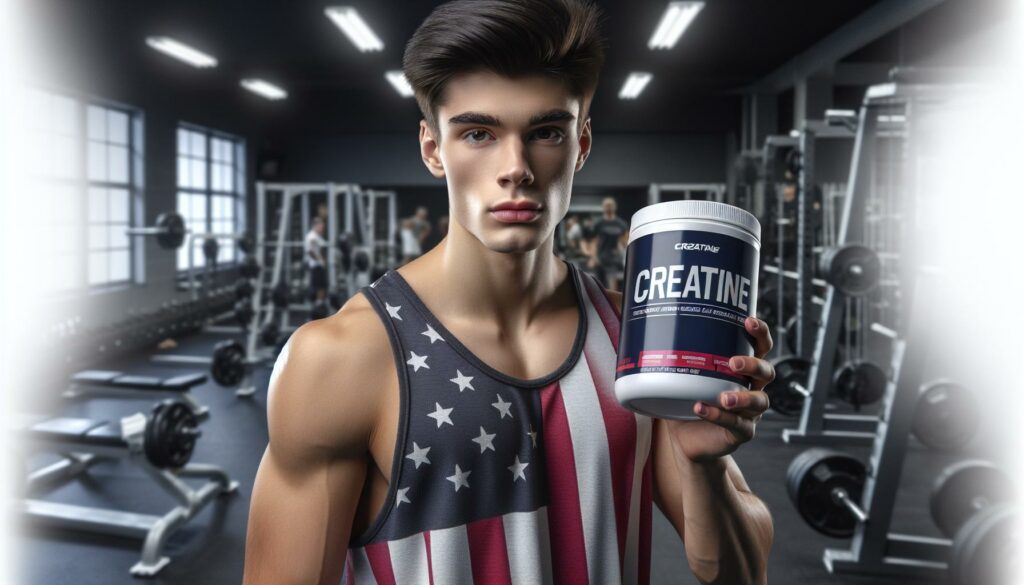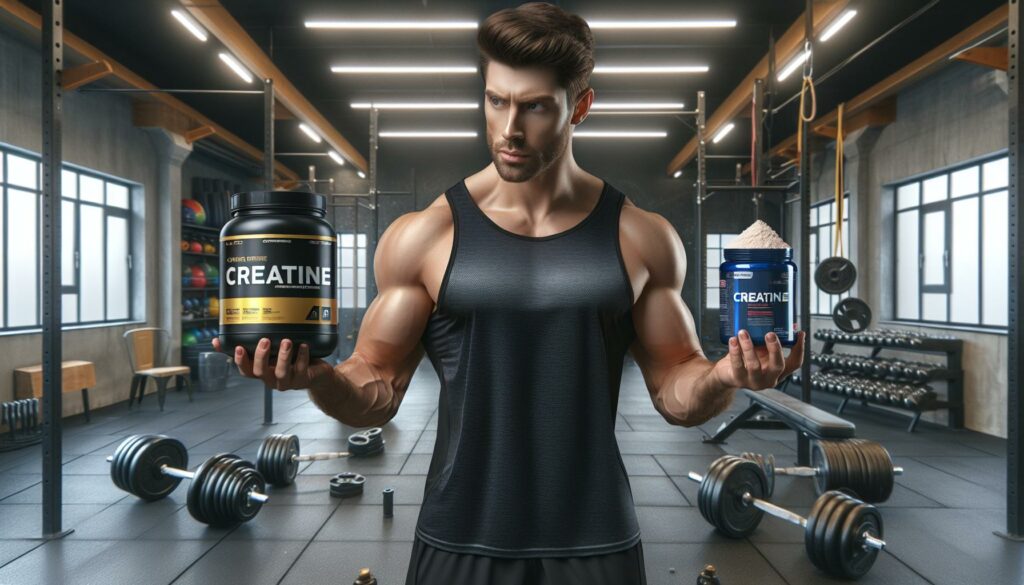If you’ve been hitting the gym lately you’ve probably heard about creatine – one of the most popular and well-researched supplements for muscle growth and athletic performance. I often get asked about age restrictions when it comes to purchasing creatine and it’s a topic that causes quite a bit of confusion.
While creatine has been proven safe and effective for most people there’s ongoing debate about age requirements for purchasing this supplement. Recently some states have proposed or implemented age restrictions which has left many young athletes and their parents wondering about the legal aspects of buying creatine. I’ll break down the current regulations and what you need to know before heading to the supplement store.
Key Takeaways
- How Old Do You Have to Be To Buy Creatine? There are currently no federal laws in the US regulating the minimum age for purchasing creatine, though some states have proposed 18+ age restrictions.
- Major retailers like GNC and Vitamin Shoppe typically require customers to be 18 or older to purchase creatine supplements, while other stores’ policies may vary.
- Research shows creatine is generally safe for adolescents 14 and older when proper dosing protocols are followed and used under supervision.
- Recommended daily creatine doses vary by age: 2-3g for ages 14-16, 3-5g for ages 16-18, and 5g for adults 18+.
- Medical consultation and parental oversight are strongly recommended for teenage athletes considering creatine supplementation.
- Quality creatine supplements should have third-party testing certifications and proper storage requirements to maintain effectiveness.
How Old Do You Have to Be To Buy Creatine
Creatine is a naturally occurring compound found in muscle cells that plays a crucial role in energy production. I explain how this supplement functions to enhance athletic performance and support muscle growth.
How Creatine Works in the Body
Creatine phosphate serves as a rapid energy source for muscle contractions during high-intensity activities. The body stores creatine primarily in skeletal muscle tissue, where it bonds with phosphate to form phosphocreatine. During intense exercise, phosphocreatine breaks down to release energy, replenishing ATP (adenosine triphosphate) levels for immediate muscle power.
Key functions in the body:
- Regenerates ATP for explosive movements
- Increases water content in muscle cells
- Enhances protein synthesis
- Reduces muscle breakdown
- Supports cellular hydration
Benefits for Athletes and Fitness Enthusiasts
Creatine supplementation delivers measurable performance improvements across multiple athletic domains. Research demonstrates significant gains in specific fitness metrics:
| Performance Metric | Average Improvement |
|---|---|
| Strength Gains | 5-15% |
| Power Output | 5-20% |
| Sprint Speed | 1-5% |
| Muscle Mass | 2-4 pounds in 4-8 weeks |
- Boosts explosive power in short-duration activities
- Increases muscle size through enhanced water retention
- Improves recovery between training sets
- Enhances cognitive performance during exercise
- Supports lean muscle development
- Reduces exercise-induced muscle damage
Age Restrictions for Buying Creatine
Age restrictions for purchasing creatine vary by location and retailer policies in the United States. The regulations range from no restrictions to specific age limits, creating a complex landscape for consumers.
Federal and State Regulations
No federal laws exist that regulate the minimum age for creatine purchases in the United States. New York state introduced legislation in 2023 to ban creatine sales to individuals under 18, though it hasn’t passed. Several states, including California Illinois Massachusetts, have proposed similar bills to restrict creatine sales to minors.
| State | Proposed/Enacted Age Restriction | Status |
|---|---|---|
| New York | 18+ | Proposed |
| California | 18+ | Proposed |
| Illinois | 18+ | Proposed |
| Massachusetts | 18+ | Proposed |
Retailer-Specific Policies
Major retailers implement their own age restrictions for creatine purchases. GNC requires customers to be 18 or older to buy creatine supplements. Vitamin Shoppe enforces an 18+ age requirement for creatine purchases in their stores. Amazon displays age verification notices on creatine products, though enforcement varies. Local supplement stores often follow similar age guidelines, with most requiring customers to be 18+.
| Retailer | Age Requirement |
|---|---|
| GNC | 18+ |
| Vitamin Shoppe | 18+ |
| Walmart | No official policy |
| Amazon | Varies by seller |
Safety Considerations for Young Users
Scientific research demonstrates that creatine’s safety profile extends to young users when proper dosing protocols are followed. The focus on safety considerations helps determine appropriate age guidelines for creatine supplementation.
Research on Creatine Use in Adolescents
Multiple clinical studies affirm creatine’s safety in adolescent populations. Research published in the Journal of the International Society of Sports Nutrition reports no adverse effects in athletes aged 14-18 who supplemented with creatine. Studies demonstrate:
- Enhanced recovery rates from high-intensity exercise in teenage athletes
- Improved muscle strength gains during resistance training programs
- Decreased risk of sports-related injuries through better muscle conditioning
- Normal kidney function markers throughout supplementation periods
- Zero impacts on growth plates or hormonal development
- Starting age: 14 years or older
- Athletic participation: Regular involvement in resistance training or competitive sports
- Supervision requirements: Parent approval plus coach or healthcare provider oversight
- Dosing modifications: Lower doses for younger athletes (2-3g daily vs. adult 5g)
- Duration limits: 8-12 week cycles with monitoring
- Pre-existing conditions: Medical clearance for users with kidney issues or diabetes
| Age Group | Daily Dose | Loading Phase |
|---|---|---|
| 14-16 | 2-3g | Not recommended |
| 16-18 | 3-5g | Optional |
| 18+ | 5g | Standard protocol |
Parent and Healthcare Provider Guidance
Parents play a crucial role in monitoring their teen’s supplement use while healthcare providers offer essential medical oversight. Here’s what to consider when evaluating creatine supplementation for young athletes.
Consulting Medical Professionals
Medical consultation creates a foundation for safe creatine supplementation through:
- Reviewing medical history for potential contraindications
- Assessing current training intensity level
- Evaluating kidney function through baseline blood tests
- Monitoring hydration status during supplementation
- Tracking progress through regular health checkups
- Adjusting dosage based on individual response
- Identifying interactions with medications or other supplements
- Verifying product quality from reputable manufacturers
- Reading ingredient labels for added substances
- Understanding dosing protocols specific to age groups
- Monitoring supplement timing with meals
- Tracking performance metrics during use
- Documenting any side effects
- Setting clear guidelines for supplement use
- Establishing communication channels with coaches
| Age Group | Recommended Daily Dose | Supervision Level |
|---|---|---|
| 14-16 years | 2-3g | Direct parent oversight |
| 16-18 years | 3-5g | Regular monitoring |
Best Practices for Creatine Supplementation
Following established protocols maximizes creatine’s benefits while ensuring safety. Here’s a detailed breakdown of essential practices for optimal supplementation.
Proper Dosage and Timing
The most effective creatine dosing strategy involves two distinct phases:
Loading Phase (Optional)
- Take 20-25g daily, split into 4-5 doses of 5g each
- Continue for 5-7 days
- Consume with carbohydrate-rich meals or drinks
- Mix with 8-12 oz of water per 5g serving
Maintenance Phase
- Take 3-5g daily
- Choose a consistent time each day
- Take with post-workout meal for enhanced absorption
- Maintain adequate hydration (3-4 liters daily)
| Age Group | Daily Maintenance Dose |
|---|---|
| 14-16 years | 2-3g |
| 16-18 years | 3-5g |
| 18+ years | 5g |
Quality and Safety Standards
Selecting high-quality creatine requires attention to specific criteria:
- Look for third-party testing certifications (NSF, USP, Informed Choice)
- Select products with CreaPure® certification
- Check for micronized creatine monohydrate formulation
- Verify transparent ingredient labeling
- Store in cool, dry place below 77°F (25°C)
- Keep container tightly sealed
- Avoid exposure to direct sunlight
- Check expiration dates before purchase
- Transfer powder to airtight container if original packaging tears
Age Limit
How Old Do You Have to Be To Buy Creatine? While there’s no federal law setting an age limit for buying creatine most retailers require customers to be 18 or older. I’ve found that this precaution aligns with safety guidelines and expert recommendations for young athletes.
For those under 18 who are interested in creatine supplementation I strongly recommend working with parents healthcare providers and coaches. Following proper dosing protocols and choosing high-quality products ensures the safest and most effective results.
Remember that whether you’re old enough to purchase creatine or not the key is making informed decisions about supplementation based on your individual needs training goals and medical history.



